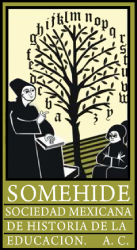Indigenous Education and the Educators at the 1893 Central American Congress
DOI:
https://doi.org/10.29351/rmhe.v1i1.13Keywords:
Indians, educators, educational conference, State, Central AmericaAbstract
In the case of the 1893 Central American Conference, analysis of the relationship between teachers and advocates for the reform of primary education, contributes elements that make visible the liberal, positivist form of government through educational arguments concerning the organization of schooling. The Central America Conference reflects their concerns on how the State should civilize "the indigenous race" in order to inculcate the habits and ideas of progress of civilized nations. The analysis of educational conferences allows us to approach the thoughts, actions and professional ties of educators. By understanding their common and individual interests, their positions, their agreements and disagreements, we can analyze the intellectual fabric of this period in different Latin American settings. Interactions between local and regional actors, organized and recognized by the State, have a significant influence on ideas about what schools should be and do in relation to different sectors of society, by distinguishing needs and particular conditions. In this article, educators´ thoughts, career paths and actions are reconstructed through reports in the educational press of the time and contributions of recent studies. This leads to understanding of the history of education in particular contexts, while establishing differences and similarities through various contexts.
References
Argueta Hernández, Bienvenido (2011), El nacimiento del racismo en el discurso pedagógico, vol. I, El Instituto Agrícola de Indígenas, Guatemala, PACE-GIS.
Arriola, Jorge Luis (2009), Diccionario Enciclopédico de Guatemala, 2 ts., Guatemala, Universidad de San Carlos de Guatemala.
Barillas, Edgar (1989), El problema del indio durante la época liberal, Guatemala, Instituto de Investigaciones Históricas, Antropológicas y Arqueológicas-USAC (Temas monográficos núm. 2).
Bourdieu, Pierre (1978), “Racisme de l’intelligence“, Coloquio ‘Races, sociétés et aptitudes’ de UNESCO (MRAP), mayo de 1978, Cahiers Droit et liberté, núm. 382, pp. 67-71.
Cambranes, Julio (1977), El imperialismo alemán en Guatemala. El tratado de comercio de 1887, Guatemala, IIES/Universidad San Carlos de Guatemala.
Casaús Arzú, Marta Elena (2010), El lenguaje de los ismos: algunos conceptos de la modernidad en América latina, Guatemala, F&G Editores.
Fernández Ferraz, Juan (1892), “Sobre lenguas de los aborígenes de la América Española e influencia que han ejercido en la que hoy se hablan en las naciones Hispano-Americanas”, Ponencia presentada en la Exposición Histórica Americana, Madrid, 30 de Octubre de 1892, en Memorias, Sección primera. Filología, pp. 485-491, documento PDF disponible en: <http://cvc.cervantes.es/lengua/con-greso_literario/pdf/CVC_congreso_484.pdf > (consulta: 04/05/2012).
Gómez Isa, Felipe (coord.) (2004), Racismo y genocidio en Guatemala, 2a ed., San Sebastián, Instituto Derechos Humanos Pedro Arrupe/Fundación Rigoberta Menchú, documento PDF disponible en: <http://www.mugengainetik.org/archivos/racismo%20y%20genocidio%20en%20guatemala.pdf> (consulta: 15/05/2012).
González Ponciano, J. Ramón (1991), “‘Del café, los indios y el Iluminismo’. El Instituto Agrícola de Indígenas durante el gobierno del general José María Reina Barrios (1892-1898)”, en Memoria del encuentro de intelectuales. Chiapas-Guatemala, San Cristóbal de Las Casas, Chiapas, celebrado del 5 al 9 de junio de 1990, Instituto Chiapaneco de Cultura/Gobierno del Estado de Chiapas, pp. 17-24.
Memorias del Primer Congreso Pedagógico Centroamericano de 1893 (CPC) (1893), Guatemala, s/e, documento PDF disponible en: <http://www.archive.org/stream/primercongresope00guat#page/4/mode/1up> (consulta: 11/10/2011).
Meneses Morales, Ernesto (1998), Tendencias educativas oficiales en México. 1821-1911, 2a ed., México, Centro de Estudios Educativos/Universidad Iberoamericana.
Ordóñez Cifuentes, José Emilio Rolando (1991), “Constitución y derechos étnicos México / Centroamérica”, en Aspectos nacionales e internacionales sobre derecho indígena, México, Instituto de Investigaciones Jurídicas / Universidad Nacional Autónoma de México, pp. 191-231.
Revista México Intelectual (1892) (varios números), Veracruz, México, Escuela Normal de Jalapa.
Torres Valenzuela, Artemis (2010), “El positivismo, concepto civilizador en Guatemala”, en Marta Elena Casaús Arzú (coord.), El lenguaje de los ismos: algunos conceptos de la modernidad en América Latina, Guatemala, F&G Editores, pp. 97-124.
Downloads
Published
How to Cite
Issue
Section
License
Copyright (c) 2013 Amalia Nivón Bolán

This work is licensed under a Creative Commons Attribution-NonCommercial-ShareAlike 4.0 International License.









